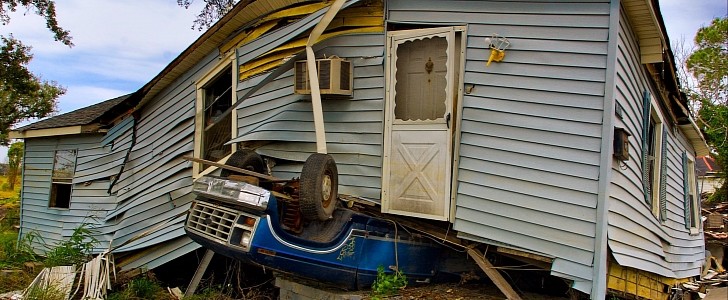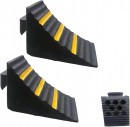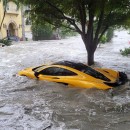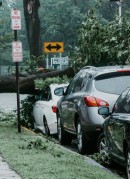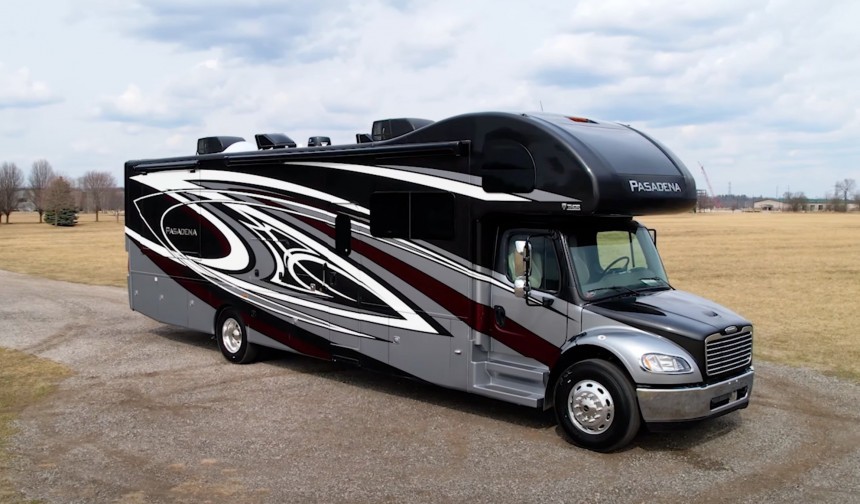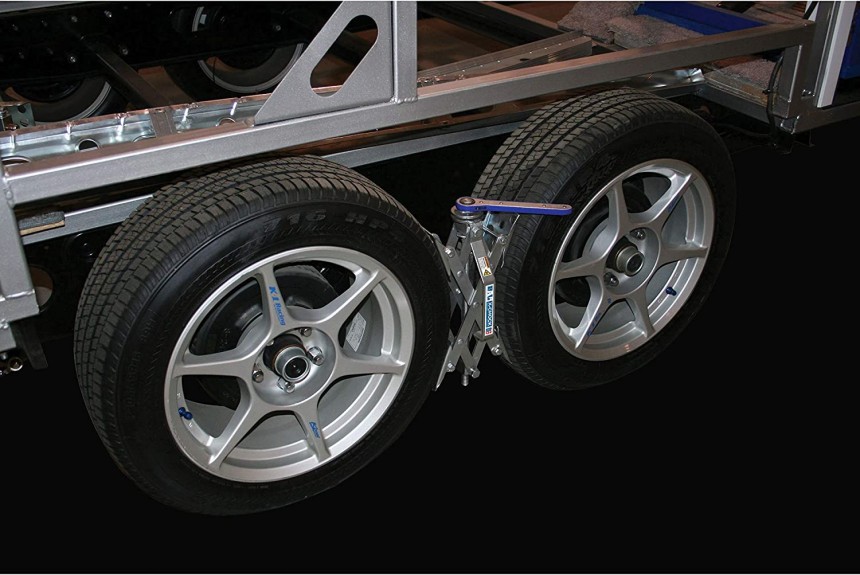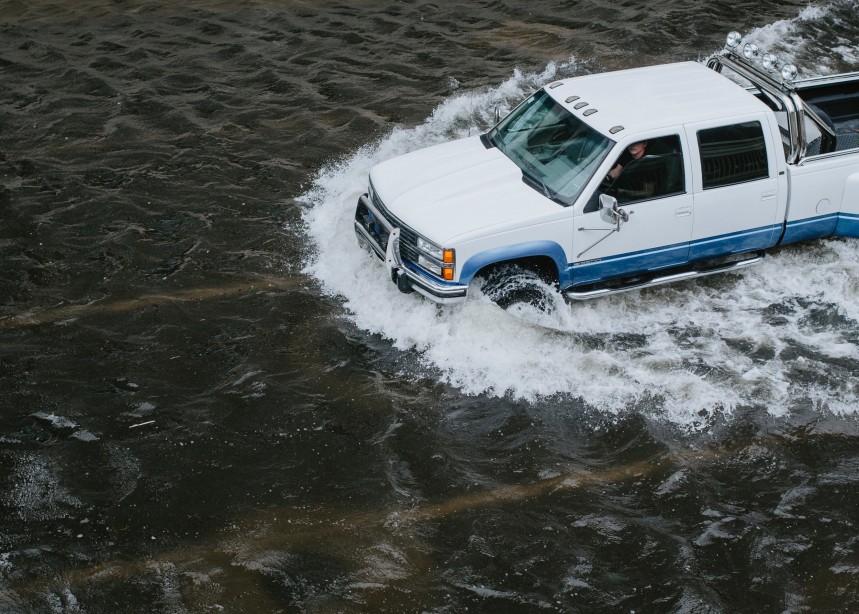You're out there driving along in your RV, exploring the lands, and somehow, someway, your trip has managed to cross paths with a brewing hurricane. What do you do? Today, we're going to explore a few things you need to consider if your adventure plans include getting close to a hurricane-affected area or even requiring you to leave your RV or camper behind.
Let's face it, the situations mentioned above can be and should be avoided at all times. That's not to say that you shouldn't know what to do in case your travels happen to find you near or right in the middle of a hurricane-affected area.
Now, there's just so much you can and should do in case your RV plans are affected in this way, and since time is of the essence here, I'll try and stick to a few brief essentials you need to consider for staying safe, and number one on the list is to have a solid evacuation plan. This is in case the unspeakable happens and you've been caught in the middle.
What's an evacuation plan? Exactly what it sounds like: the steps needed to ensure everyone is accounted for and safe. Now, some of these steps are handled by local authorities, typically planning the most effective routes to use for safely clearing an area; listen to their directions. But you and your family can always add things like a meeting place outside of the storm's path and non-digital emergency information (typically card-like).
Everyone should also have a backpack or bag ready with a few essentials in case things really go south. Personally, I was able to find some solid information on State Farm's website, and it's as timeless as ever. Oh, and don't be the wise guy, thinking you know better than local authorities; listen and follow along to broadcasts and detailed directions.
Now avoiding a hurricane is dang easy. Why? Because they are predictable! Typically, these storms have patterns and ones that are clear well in advance. But, if you're somewhere in Florida, Georgia, or any of the Carolinas, you need to be ready. At this point, you've been caught by the edge of the storm and forced to abandon your RV in some park. So to ensure you have something to return to, you should consider some of the following steps and even go further than this article and really arm yourself with knowledge.
As you can imagine, RVs and high winds don't mix. Remember that some campers and travel trailers are built out of nothing more than panels of wood, aluminum, and even tent canvas; butter for a hurricane's knives. Even larger units like fifth wheels or tiny homes don't stand a chance against 100 mph winds; precautions must be taken.
So, if you've got to ditch your RV, a few things you need to consider include returning slide-outs to their closed position, sealing/shutting doors and windows to keep the elements out, sealing documents in waterproof containers, turning off electrical and gas systems, and even emptying and refilling all holding tanks with water to add weight to your unit.
Just as important is finding an adequate place for you to actually leave your RV, and enclosed facilities are one of the best choices. If you've been caught out in the wild, stay away from trees and low areas as branches and trees snap and fall and low landscapes flood; use that grey matter you've been endowed with.
Another critical aspect to consider is the eventuality that you may need to secure, tie-down, or even anchor your RV. A few ways to do this can be carried out with gear that most RV owners should have, tire cradles and wheel chocks, but stabilizer jacks can also be used to secure your mobile units. Finally, god forbid you to need to use anchors, but this solution is one you can consider if things get rough.
One other choice that is always valid is to get the hell out of dodge while you still can. But you do need to heed the warnings and instructions of local authorities, don't drive through water, and depending on the size and weight of your RV, it may be better not to attempt driving through high-wind areas.
At the end of the day, the information I've just thrown at you is nothing more than just the tip of the iceberg when preparing for such a natural phenomenon. In truth, if you own an RV, safety is an aspect you better be eating for breakfast, and those that have had a leak that led to a spark to a possible fire, know how quickly things can go awry; knowledge is power.
Now, there's just so much you can and should do in case your RV plans are affected in this way, and since time is of the essence here, I'll try and stick to a few brief essentials you need to consider for staying safe, and number one on the list is to have a solid evacuation plan. This is in case the unspeakable happens and you've been caught in the middle.
What's an evacuation plan? Exactly what it sounds like: the steps needed to ensure everyone is accounted for and safe. Now, some of these steps are handled by local authorities, typically planning the most effective routes to use for safely clearing an area; listen to their directions. But you and your family can always add things like a meeting place outside of the storm's path and non-digital emergency information (typically card-like).
Now avoiding a hurricane is dang easy. Why? Because they are predictable! Typically, these storms have patterns and ones that are clear well in advance. But, if you're somewhere in Florida, Georgia, or any of the Carolinas, you need to be ready. At this point, you've been caught by the edge of the storm and forced to abandon your RV in some park. So to ensure you have something to return to, you should consider some of the following steps and even go further than this article and really arm yourself with knowledge.
So, if you've got to ditch your RV, a few things you need to consider include returning slide-outs to their closed position, sealing/shutting doors and windows to keep the elements out, sealing documents in waterproof containers, turning off electrical and gas systems, and even emptying and refilling all holding tanks with water to add weight to your unit.
Just as important is finding an adequate place for you to actually leave your RV, and enclosed facilities are one of the best choices. If you've been caught out in the wild, stay away from trees and low areas as branches and trees snap and fall and low landscapes flood; use that grey matter you've been endowed with.
One other choice that is always valid is to get the hell out of dodge while you still can. But you do need to heed the warnings and instructions of local authorities, don't drive through water, and depending on the size and weight of your RV, it may be better not to attempt driving through high-wind areas.
At the end of the day, the information I've just thrown at you is nothing more than just the tip of the iceberg when preparing for such a natural phenomenon. In truth, if you own an RV, safety is an aspect you better be eating for breakfast, and those that have had a leak that led to a spark to a possible fire, know how quickly things can go awry; knowledge is power.
